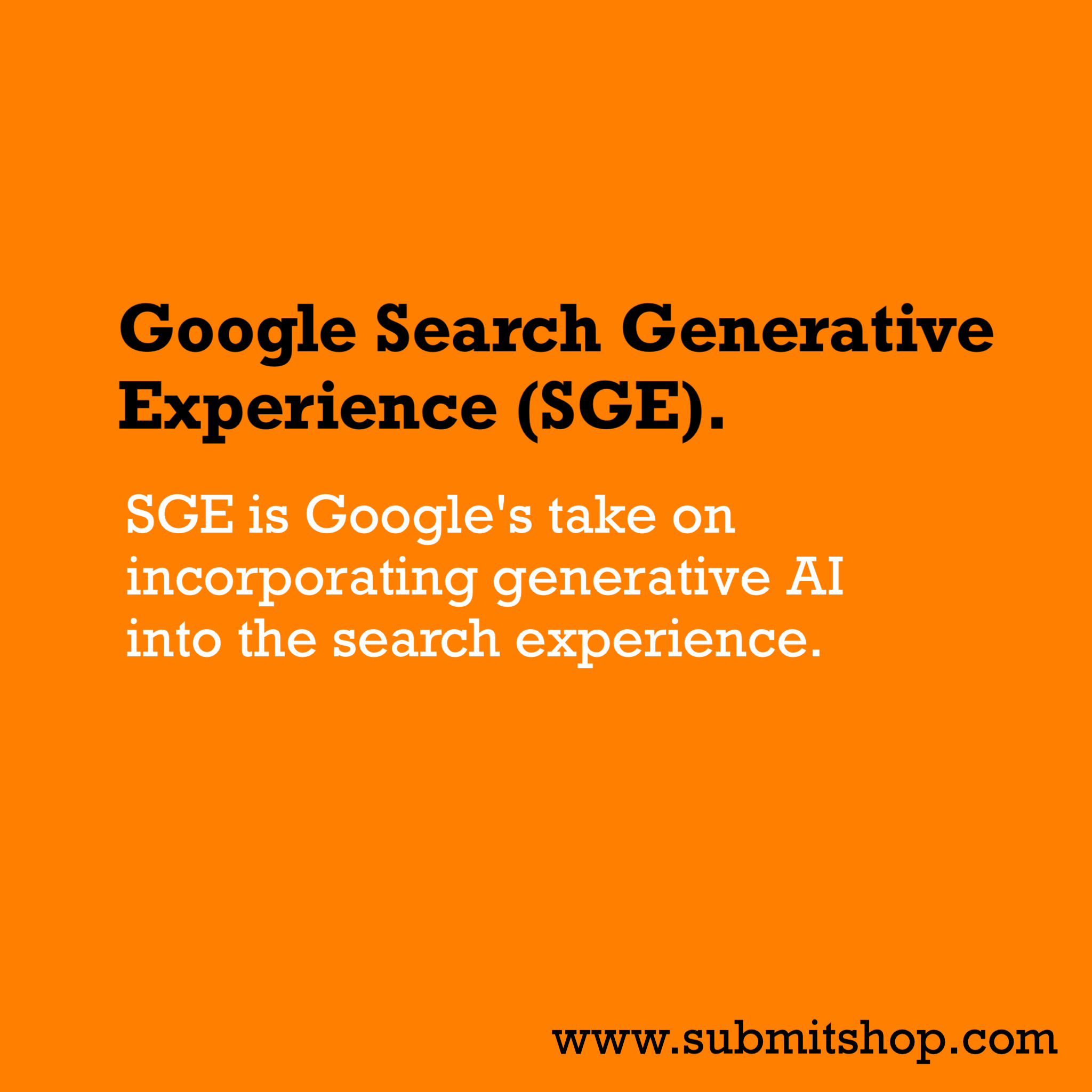What is Google Search Generative Experience (SGE)
Google Search Generative Experience (SGE) is a new experiment from Google that uses generative AI to provide more comprehensive and informative search results. SGE is currently available in the US in English only and only to users who have opted into the Search Labs program.
When you search for a query eligible for SGE, you will see a new section at the top of the results page called “SGE Results.” This section will contain a summary of the query, as well as a number of different types of content, including:
- Facts: SGE will try to identify and summarize the most important facts about your query.
- Expert advice: SGE will collect advice from experts on your query and present it in a clear and concise way.
- Product recommendations: SGE will recommend products that are relevant to your query and that have been rated highly by other users.
SGE is still under development, but it has the potential to revolutionize the way we search for information. By providing more comprehensive and informative results, SGE can help us to understand the world around us better and make more informed decisions.
Here are some examples of how SGE can be used:
- Shopping: When you search for a product, SGE will provide you with a summary of the product, as well as expert advice and product recommendations. This can help you to make a more informed decision about which product to buy.
- Travel: When you search for a travel destination, SGE will provide you with a summary of the destination, as well as expert advice and travel recommendations. This can help you to plan your trip and make the most of your time at your destination.
- Research: When you search for a topic for research, SGE will provide you with a summary of the topic, as well as expert advice and research resources. This can help you to get started on your research and to find the information you need.
The benefit of Google Search Generative Experience (SGE)
Here are some benefits of using the Google Search Generative Experience:
- Improved search results: Generative models can understand natural language queries better and provide more accurate and relevant search results. This leads to a more satisfying and efficient search experience for users. It will also help SEO in the future.
- Enhanced understanding of complex queries: Generative models have the ability to comprehend complex queries with multiple variables and nuances. They can decipher user intent and provide more precise answers, even when the query is ambiguous or context-dependent.
- Personalized responses: By leveraging generative models, Google can tailor search results based on user preferences, history, and context. This personalization enhances the user experience by delivering more relevant and customized information.
- Natural language interaction: The Google Search Generative Experience allows users to interact with search results using natural language. Users can ask follow-up questions, seek clarifications, or explore related topics in a conversational manner, making the search process more intuitive and user-friendly.
- Enhanced content discovery: Generative models can help users discover relevant content that they might not have explicitly searched for. By understanding user preferences and context, Google can recommend related articles, videos, or resources that align with the user’s interests.
Overall, the Google Search Generative Experience leverages the power of generative models to improve search accuracy, personalize results, enable natural language interaction, and enhance content discovery, ultimately providing users with a more intuitive and satisfying search experience.
You want to try out SGE, you can sign up for the Search Labs program. To do this, open the Google app or Chrome desktop and tap the Labs icon. Then, search for “SGE” and enable the “Search Generative Experience” experiment. Once you have enabled the experiment, you will see SGE results when you search for eligible queries.

